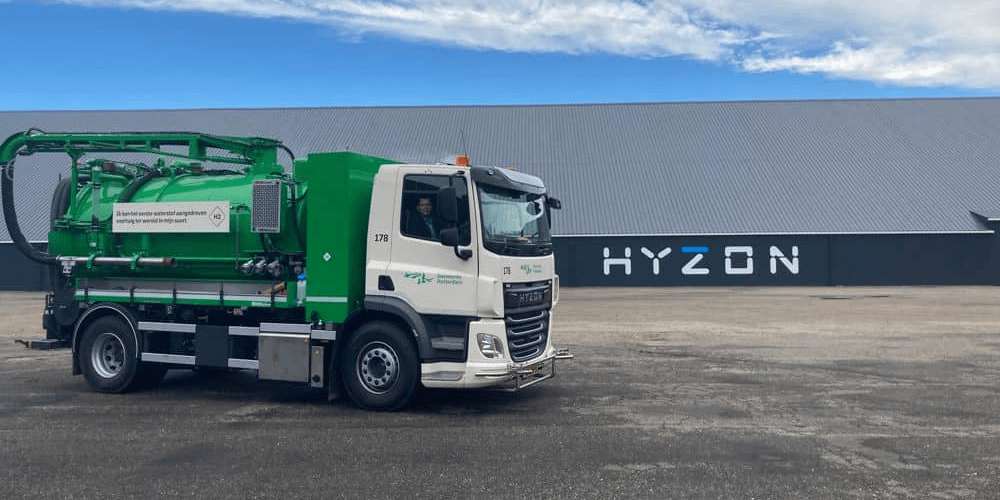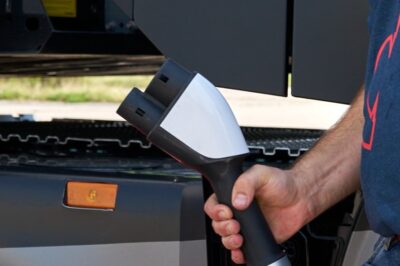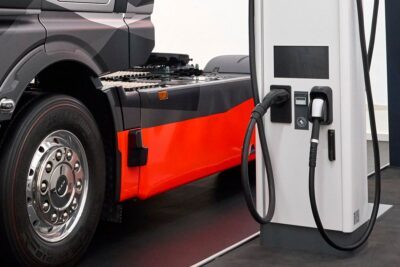Hyzon and Geesinknorba agree on H2 garbage trucks
Hyzon Motors has become the exclusive vendor for hydrogen fuel cell trucks for the Dutch refuse collection company Geesinknorba. Under the agreement, 300 trucks or more are to be supplied by Hyzon during the three-year contract. The first trucks are destined for Barcelona where Geesinknorba has been contracted to provide zero-emission trucks.
Geesinknorba already deploys zero-emissions vehicles throughout Europe. The agreement stipulates that Geesinknorba refuse collection bodies, compaction mechanisms and lifters “will all be available for integration with the Hyzon zero-emission vehicle platforms.” These first hydrogen fuel cell trucks will be produced in Geesinknorba’s facility in Emmeloord and Hyzon’s manufacturing plant in Groningen, Netherlands.
Hyzon CEO Craig Knight says: “The partnership with Geesinknorba builds on a shared understanding that sustainable refuse collection can have a significant impact on decarbonizing communities and improving quality of life in our residential neighbourhoods.” He explains, “To realize this impact, the solutions must be accessible, robust, and easy to use. Combining Geesinknorba and Hyzon’s expertise will provide this solution to fleet operators across Europe.”
Geesinknorba operates in more than 30 countries and with more than 7,500 refuse collection vehicles. Significantly for Hyzon, the pan-European company Geesinknorba is also the largest provider of battery- and fuel-cell electric refuse collection vehicles in Europe.
Electrically motorised vehicles (with battery or fuel cell) are particularly suited to municipal waste disposal services because of the stop-and-go nature of the task, which is more easily done with an electric motor. The lack of noise in urban areas is another positive factor for garbage trucks with electric motors. Hyzon says that refuse collection particularly benefits from hydrogen fuel cell technology, because the back-to-base model allows for a central refuelling infrastructure.
Recently at electrive, we looked at use-case scenarios for battery-electric and fuel cell trucks in comparison. Both have different advantages and required infrastructure. Despite being a young company, Hyzon has already been very active in the area of municipal vehicles. In Australia, Hyzon Motors has signed a Memorandum of Understanding with Superior Pak, an Australian manufacturer of waste handling equipment, to develop and supply up to 20 refuse collection vehicles in 2022. In Utrecht in the Netherlands, Hyzon will be providing up to 1800 different fuel cell vehicles and hydrogen infrastructure, which will include municipal vehicles. Also in the Dutch city of Groningen, Hyzon Motors will be providing fuel cell municipal waste vehicles.
For the current agreement between Hyzon and Geesinknorba, the two companies will collaborate to provide ongoing maintenance and service to end-use customers. The two companies say they want to make it easy for fleet owners to switch to an emissions-free solution.





0 Comments